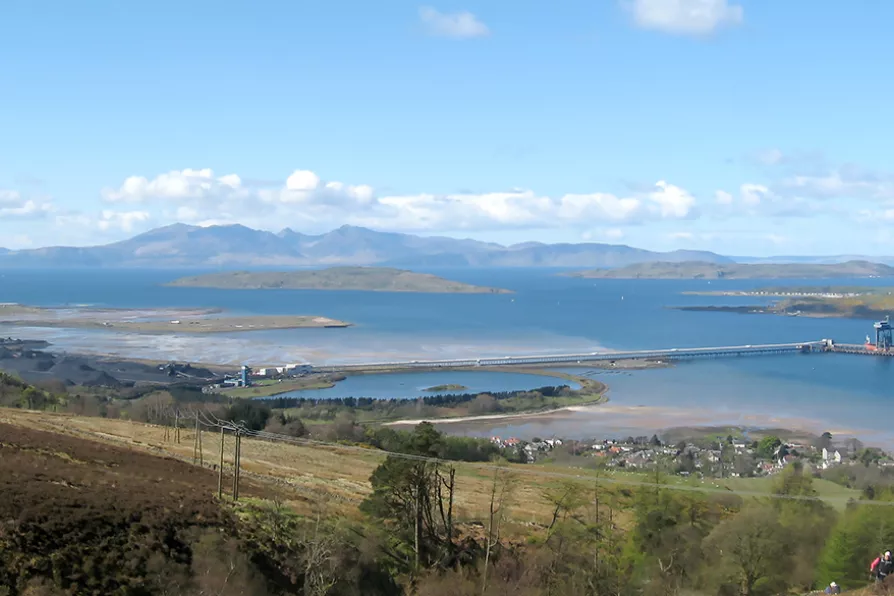Reform’s rise speaks to a deep crisis in Establishment parties – but relies on appealing to social and economic grievances the left should make its own, argues NICK WRIGHT
Starmer's CHANGE: is a threat, promise, or a command?
MATT KERR is troubled by Labour election slogan and the old adage it invokes that ‘the more things change, the more they stay the same’

 NO SLEEPING GIANTS HERE: View from Kaim Hill over the abandoned Hunterston Terminal and construction yard, across the Firth of Clyde to the Cumbraes and Arran
NO SLEEPING GIANTS HERE: View from Kaim Hill over the abandoned Hunterston Terminal and construction yard, across the Firth of Clyde to the Cumbraes and Arran
THE NEWS was out, the leaks set, and the tell-tale appearance of the logo-free lectern in the middle of the road in Downing Street was the final, undeniable, sign that we were going to be asked to vote for another government.
I listened to Mr Sunak, but I’ll confess that I really didn’t hear very much; remarkable only in that it somehow managed to rework John Major’s old campaign slogan “yes it hurt, yes it worked” into something even more agonisingly dull and ghoulish.
It was a cruel irony that those of us remote from the whole farce could hear every word on the television or radio, while those in Downing Street were spared the content.
Similar stories

MATT KERR ponders the seduction on offer from a turbo-trainer to the detriment of a road romance

Forty years on, an ex-miner tells MATT KERR about the brutal police tactics used against Scottish pickets at a crucial coal terminal, part of the hidden history of state violence and media manipulation during the miners’ strike

KENNY MacASKILL argues that ports are a local community assets and as such should be governed by corresponding municipalities or even nationalised

While revisiting his old postie haunts of Harhill, MATT KERR is reminded that Aneurin ‘Nye’ Bevan did build, post-WWII, something that has stood the test of time. Very little else has, if we are honest









